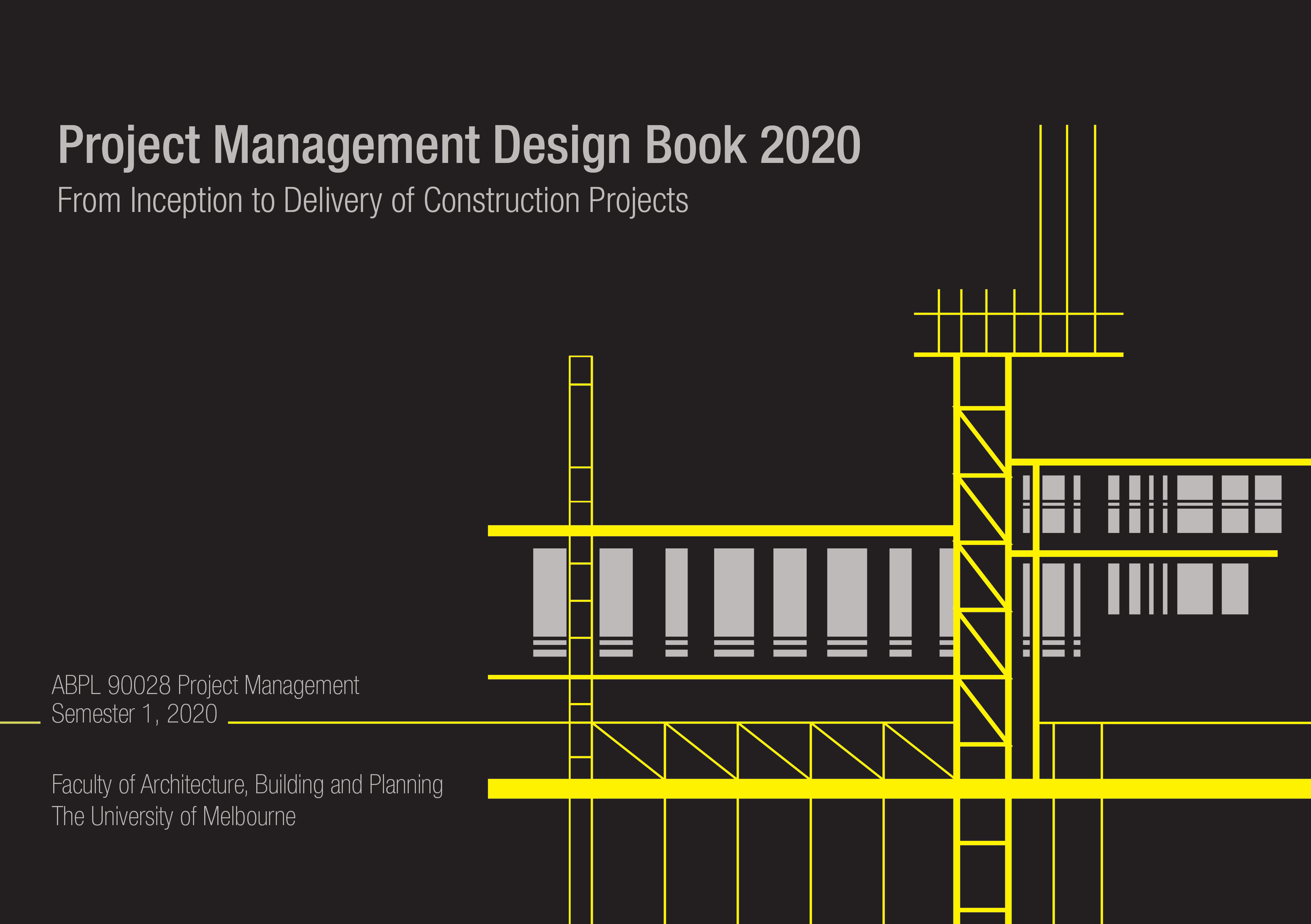Subject coordinator: Associate Professor Hemanta Doloi
_
Project Management Design Book 2020
Introduction
The “Project Management Design Book 2020” comprises students’ academic work in the Project Management class undertaken in Semester 1, 2020.
This being a capstone subject within the Master of Construction Management course, students are required to exhibit significant new knowledge for demonstrating the project management processes throughout the semester. In this subject, theory of Project Management is taught from the practice perspective. The teaching method comprises two clear aspects, project development and project management. In project development aspect, entire business processes from client’s brief to tendering are practiced among the students in the class. In doing so, students are required to play two key roles, The Clients and The Contractors. While the Clients own the projects, the Contractors compete to win the project through a competitive tendering process. In the competitive tendering process, students are required to exhibit the project development and management skills covering the entire lifecycle of the project. The lifecycle of a typical construction project comprises inception, tendering, planning, construction, operation and recycle phases.
While exploring the project management body of knowledge, students are required to demonstrate relevant knowledge and application contexts focusing on the following key aspects:
- Overview of project management including project organisation, project team, project manager, project definition, scoping and finalisation
- Project management functions including scope management, time management, cost management, quality management, risk management, procurement management, human resources management, communication management, integration management, stakeholder management, financial management and health, safety, security & environmental management
- Project management processes including project definition, project integration, project implementation and control and project close-out.
Following the success from 2019 and exploring the concept of “Project Management by Design”, a total of 39 posters were designed by seven client groups and 32 tenderer groups. Reflecting the design culture of the Faculty of Architecture, Building and Planning at the University of Melbourne, students were required to design posters capturing their innovations in the context of project development and management. By creating posters, students were required to express their design skills and competencies focusing on the key project management concepts. These concepts include scope identification, work breakdown, time estimation and scheduling, cost breakdown, quality assurance and quality control systems, risk management plan, procurement and contract administration including various managerial controlling and monitoring techniques.
Unlike the past practice, due to COVID-19 lockdown, this year students were required to work virtually and exhibit the design using online platform. Regardless of the difficulty, students showed some very high degree of confidence and resilience throughout the semester which resulted in high quality outputs in the class.
Through the poster design and exhibition process, students:
- demonstrated an introductory level knowledge of scope, cost, time, quality, risk, procurement and integration management aspects of projects generally
- developed underpinning knowledge of management functions as applied to projects
- Provided practical examples and opportunities to apply scope, time, cost, quality, risk and procurement management to projects
- applied tools in a project environment
- developed a systematic framework for management function on projects
Exploring the practice of managing project by design, students were able to highlight their understanding across the concepts such as nature of the construction industry, the roles and types of projects, financing arrangement and delivery schemes such as Design-Built, BOOT, PPP. Considering the project development environment relative to the market opportunities, students demonstrated some high degree of understanding in evaluation of bids, planning constraints, establishing the market and putting together a winning bid. The process highlighted both client’s and tenderers’ perspectives of project development, including preparing and evaluating tenders for complex developments. The practice based skill gained on project development and management was validated by a large group of industry experts across a range of interactive activities throughout the semester.
Dr Hemanta Doloi
Associate Professor in Construction Management
Coordinator, Project Management
_
Project Management Design Book 2020: Epub
(21MB download)
